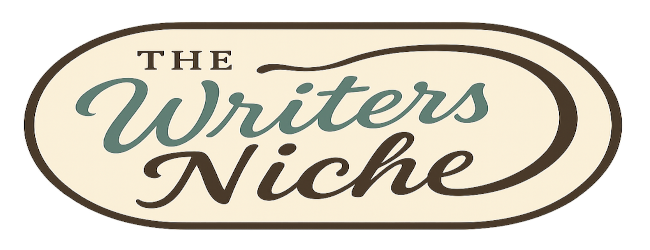
How to Craft Engaging Email Newsletters That Build Loyalty and Boost Results
You’ve probably heard that “email is dead.” But here’s the truth: email is one of the most powerful tools writers have to connect directly with their audience.
While social media algorithms come and go, your email list is yours. And a well-crafted newsletter? It can turn casual readers into loyal fans, paying clients, or lifelong supporters.
The challenge: How do you write email newsletters that people actually look forward to, open, and engage with?
In this guide, you’ll learn how to plan, write, and optimize email newsletters that stand out in crowded inboxes and deliver real value.
1. Understand the Purpose of Your Newsletter
Before you start, ask:
✅ Why am I sending this newsletter?
✅ Who am I writing to?
✅ What do I want them to feel, know, or do?
Common newsletter goals:
- Build trust and community
- Drive traffic to your blog, book, or offer
- Share personal updates or stories
- Teach, entertain, or inspire
Pro tip: Get clear on why you’re emailing that clarity will shape everything else.
2. Choose the Right Email Platform
To send professional newsletters, you need an email service provider.
Top options:
✅ MailerLite: beginner-friendly, free up to 1,000 subscribers
✅ ConvertKit: great for creators, powerful automations
✅ Substack: blogging + email combined, easy to set up
✅ Flodesk: beautiful templates, flat pricing
Pro tip: Start simple don’t let tech hold you back.
3. Craft an Irresistible Subject Line
Your subject line is your first (and often only) chance to hook readers.
✅ Keep it short (under 50 characters)
✅ Create curiosity or promise value
✅ Use natural, conversational language
Examples:
- “Confession: I almost gave up on this piece”
- “3 tiny writing tweaks that made a big difference”
- “Your free writing checklist is inside”
Pro tip: Test subject lines and track open rates.
4. Nail the Opening Line
The first line people see in the inbox preview matters almost as much as the subject.
✅ Greet the reader personally if possible
✅ Jump into a story, question, or bold statement
✅ Avoid robotic or generic openings
Example:
- “Last week, I hit a creative wall here’s how I climbed over it.”
5. Focus on One Main Message
Avoid trying to cram everything into one email.
✅ Choose one theme or takeaway
✅ Share a related story, tip, or resource
✅ Provide a clear next step (call-to-action)
Pro tip: Less is often more keep it focused and punchy.
6. Use a Conversational, Authentic Voice
Email is personal it’s not a press release.
✅ Write like you’re emailing a friend
✅ Use “I” and “you”
✅ Show vulnerability or personality
Pro tip: Read your email aloud before sending does it sound human?
7. Include a Clear Call-to-Action (CTA)
Every newsletter should tell readers what to do next.
Examples:
✅ Read your latest blog post
✅ Share their thoughts or hit reply
✅ Download a resource
✅ Check out your new product or offer
Pro tip: Stick to one main CTA per email.
8. Format for Easy Reading
✅ Use short paragraphs
✅ Add headers, bullet points, or bolded key phrases
✅ Make sure it looks good on mobile
Pro tip: Preview your email on both desktop and mobile before sending.
9. Send Consistently (But Don’t Spam)
✅ Choose a frequency you can maintain weekly, biweekly, or monthly
✅ Stick to a regular schedule
✅ Prioritize quality over quantity
Pro tip: Tell subscribers what to expect (“You’ll hear from me every Friday with fresh writing tips”).
10. Analyze and Improve
Most platforms give you data on:
✅ Open rates
✅ Click rates
✅ Unsubscribes
Pro tip: Watch what works and do more of that.
Common Newsletter Mistakes to Avoid
❌ Writing only about yourself → Focus on what’s useful to readers
❌ Being inconsistent → Build trust with reliability
❌ Over-promoting → Deliver value before asking for anything
❌ Ignoring feedback → Pay attention to replies and unsubscribes
❌ Sending messy, unformatted emails → Make it visually clean and clear
Sample Newsletter Framework
|
Part |
Purpose |
|
Subject |
Grab attention |
|
Opening |
Hook the reader with a story or statement |
|
Main Body |
Share value: tips, story, resource |
|
CTA |
Tell readers what to do next |
|
Closing |
Sign off warmly, invite replies or feedback |
Example Newsletter
Subject: How I beat writer’s block last week
Hi [First Name],
Last Wednesday, I found myself staring at the blinking cursor of doom. Total creative paralysis.
But then I tried something new: a 10-minute freewriting sprint. No editing, no judgment just typing.
It worked.
In this week’s post, I’m sharing the 3 exercises that pulled me out of the slump. Check it out here → [link]
What’s your go-to writer’s block buster? Hit reply I’d love to hear.
Write on,
[Your Name]
Make It About Connection, Not Perfection
The best newsletters aren’t flawless they’re human.
Show up consistently. Be useful. Be yourself.
Over time, you’ll build an audience that opens, reads, and looks forward to hearing from you.
